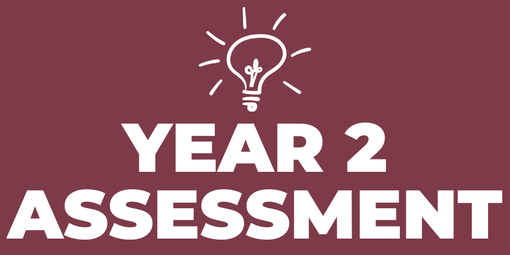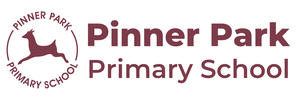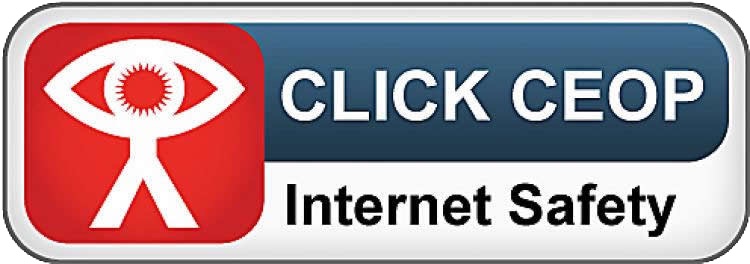Although we assess children all the time, the end of Year 2 is a statutory assessment point. Teachers are required to assess children in reading, writing and mathematics. To support the teacher's assessment in reading and mathematics, children undertake tests. Teachers use the results of the tests, alongside their knowledge of the children's learning in class, to inform their judgement.
|
|
| ||||||

Introduction
2016 saw an overhaul of the national curriculum tests (commonly referred to as SATs) for both Year 2 and Year 6 children to match the newly updated national curriculum.
This section provides information on what to expect and how to support your child.
The most important thing to remember is that the end of year assessment is a teacher assessment. Any test assessments are simply one aspect of a wide range of evidence we have for your child. This will include your child's contribution in class, the work in their books, their assessments through the school year and much more.
About the assessments
We try to make the assessment tests a part of the ordinary cycle of learning and assessment, whilst making sure that the children are adequately prepared to show their skills, understanding and knowledge. Although there are some tests, we have considerable flexibility in how to implement the tests and much of it will feel like a normal classroom day; teachers will do their best to ensure that children are not at all concerned about them. To allow this, the tests do not need to be taken on a specific day, but can be throughout the month of May near the end of Year 2, with pupils either individually, in groups or all together as a class. There are six papers altogether across English and mathematics.
Mathematics
There are two papers in the mathematics assessment for Year 2:
Paper 1 – Arithmetic
The arithmetic paper will test your child’s number and calculation skills. It has 25 questions, some of which will require children to know some basic number facts, such as the number bonds (adding two single-digit numbers) and the 2s, 5s and 10s tables. Towards the end, there are some more challenging calculations such as missing number problems or finding simple fractions of quantities.
Paper 2 – Reasoning
The second mathematics paper requires reasoning – using maths to solve problems. The first five questions in this paper will be read to your child, before they move on to the rest of the paper. But don’t worry – if they find anything difficult to read, then help will be available. The questions in this paper will often include some background explanation, such as using money to buy fruit or measuring drinks.
As with the arithmetic paper, the earlier questions will be more straightforward; questions towards the end will offer more challenge. Not all children will reach them or complete them – and that’s fine; nobody expects a perfect score!
Some of these questions may also require more than one step and so will be worth up to 2 marks.
English
There are two tests for English: Reading; and Grammar, Punctuation and Spelling (GPS).
Reading Paper 1
The first paper contains short texts with two or three questions to answer. Many of these will require either single-word answers or ticking a box.
Reading Paper 2
In Paper 2, children will read two different texts and use these to answer questions in a separate booklet. Most children will take this paper, but teachers will not expect all children to complete the whole task. If your child finds reading more of a challenge at this stage, then his/her teacher will stop the test at an appropriate time. The questions in the booklet contain a mix of tick-box and ‘circle the correct answer’ questions, with some that require a written answer. Some questions require simple retrieval of information from the text; others will ask your child to explain something in more detail.
Grammar, Punctuation and Spelling – Spelling
The spelling paper requires children to spell 20 words. Each word is read out as part of a sentence, which is printed in the answer booklet. Your child will be asked to write the missing word into the gap. The words in the test will be based on the familiar phonics patterns taught in Key Stage 1, in increasing difficulty. All words to be spelled are repeated more than once.
Grammar, punctuation and vocabulary
The second paper assesses grammar and punctuation. The questions will refer both to children’s knowledge of grammatical terms (such as noun and verb) and use of words in the right context. Some questions will also require children to put in the appropriate punctuation marks to sentences, or to change the tense of a sentence.
Marking and Results
All the tests will be marked by teachers at Pinner Park to help them judge the attainment and progress of your child. The results will be reported to you as part of a wider school report at the end of the school year.
The teachers will use the score as part of a wide range of evidence about your child's attainment. As part of our report to you at the end of the school year we will let you know, for reading, writing and mathematics, whether your child is 'working towards the expected standard', 'working at the expected standard' or 'working at a greater depth within the expected standard'.
How you can help your child prepare for the tests
The most important thing at this stage is to ensure that your child is in school every day, working hard, and completing home learning tasks (including reading every day). There is no need to do any specific ‘test practice’ – rather, just enjoy spending time helping your child to learn at home.
Parent Briefing Meeting
In January we held a parent briefing meeting. The presentation slides can be accessed by clicking the link at the top of the page.
2016 saw an overhaul of the national curriculum tests (commonly referred to as SATs) for both Year 2 and Year 6 children to match the newly updated national curriculum.
This section provides information on what to expect and how to support your child.
The most important thing to remember is that the end of year assessment is a teacher assessment. Any test assessments are simply one aspect of a wide range of evidence we have for your child. This will include your child's contribution in class, the work in their books, their assessments through the school year and much more.
About the assessments
We try to make the assessment tests a part of the ordinary cycle of learning and assessment, whilst making sure that the children are adequately prepared to show their skills, understanding and knowledge. Although there are some tests, we have considerable flexibility in how to implement the tests and much of it will feel like a normal classroom day; teachers will do their best to ensure that children are not at all concerned about them. To allow this, the tests do not need to be taken on a specific day, but can be throughout the month of May near the end of Year 2, with pupils either individually, in groups or all together as a class. There are six papers altogether across English and mathematics.
Mathematics
There are two papers in the mathematics assessment for Year 2:
Paper 1 – Arithmetic
The arithmetic paper will test your child’s number and calculation skills. It has 25 questions, some of which will require children to know some basic number facts, such as the number bonds (adding two single-digit numbers) and the 2s, 5s and 10s tables. Towards the end, there are some more challenging calculations such as missing number problems or finding simple fractions of quantities.
Paper 2 – Reasoning
The second mathematics paper requires reasoning – using maths to solve problems. The first five questions in this paper will be read to your child, before they move on to the rest of the paper. But don’t worry – if they find anything difficult to read, then help will be available. The questions in this paper will often include some background explanation, such as using money to buy fruit or measuring drinks.
As with the arithmetic paper, the earlier questions will be more straightforward; questions towards the end will offer more challenge. Not all children will reach them or complete them – and that’s fine; nobody expects a perfect score!
Some of these questions may also require more than one step and so will be worth up to 2 marks.
English
There are two tests for English: Reading; and Grammar, Punctuation and Spelling (GPS).
Reading Paper 1
The first paper contains short texts with two or three questions to answer. Many of these will require either single-word answers or ticking a box.
Reading Paper 2
In Paper 2, children will read two different texts and use these to answer questions in a separate booklet. Most children will take this paper, but teachers will not expect all children to complete the whole task. If your child finds reading more of a challenge at this stage, then his/her teacher will stop the test at an appropriate time. The questions in the booklet contain a mix of tick-box and ‘circle the correct answer’ questions, with some that require a written answer. Some questions require simple retrieval of information from the text; others will ask your child to explain something in more detail.
Grammar, Punctuation and Spelling – Spelling
The spelling paper requires children to spell 20 words. Each word is read out as part of a sentence, which is printed in the answer booklet. Your child will be asked to write the missing word into the gap. The words in the test will be based on the familiar phonics patterns taught in Key Stage 1, in increasing difficulty. All words to be spelled are repeated more than once.
Grammar, punctuation and vocabulary
The second paper assesses grammar and punctuation. The questions will refer both to children’s knowledge of grammatical terms (such as noun and verb) and use of words in the right context. Some questions will also require children to put in the appropriate punctuation marks to sentences, or to change the tense of a sentence.
Marking and Results
All the tests will be marked by teachers at Pinner Park to help them judge the attainment and progress of your child. The results will be reported to you as part of a wider school report at the end of the school year.
The teachers will use the score as part of a wide range of evidence about your child's attainment. As part of our report to you at the end of the school year we will let you know, for reading, writing and mathematics, whether your child is 'working towards the expected standard', 'working at the expected standard' or 'working at a greater depth within the expected standard'.
How you can help your child prepare for the tests
The most important thing at this stage is to ensure that your child is in school every day, working hard, and completing home learning tasks (including reading every day). There is no need to do any specific ‘test practice’ – rather, just enjoy spending time helping your child to learn at home.
Parent Briefing Meeting
In January we held a parent briefing meeting. The presentation slides can be accessed by clicking the link at the top of the page.
Further Resources
The following websites offer resources and activities for children and parents.
Oxford Owl
BBC Bitesize
Book Trust
CGP Books



